Katherine Chow, former lawyer and now Holy Trinity Brompton’s (HTB) first female and racially diverse associate vicar, spoke with our editor, Tola-Doll Fisher about her unexpected journey into church leadership and why she is passionate about intergenerational mentoring
Tola-Doll Fisher (TDF): Did you ever see yourself in church leadership?
Katherine Chow (KC): No, I was involved in youth and a number of different ministries to students as a young person [but] I grew up in a church where there were no women who preached or had senior leadership roles so I never saw myself working for the Church or being in church leadership. I ended up practising law for about ten years; I thought that I would have a job, and serve within the Church. But God had other ideas.
TDF: Didn’t HTB’s former vicar, Nicky Gumbel also start out in law?
KC: Yes, he was a barrister and so in some ways, the way we saw things [was similar]. I joined the staff team of HTB in 2016 and was mentored by Nicky Gumbel. Dare I say, ceilings were broken; it wasn’t simply invitations to do things without support, but I was supported by a number of different people. In fact, in 2020, Nicky Lee, the associate vicar of HTB at the time, felt really prompted by God to step down from his role to create space at the table for somebody else – someone from a different racial background. When Nicky Gumbel approached me to say: “Nicky Lee is stepping down, and we would like to appoint you as the associate vicar of HTB”, it was hard to hear that without getting emotional, because in over ten years of my career in law, I’d never seen a man step down for a woman. I’d never seen someone from the majority step down for someone who was in the minority. And when I had that conversation, it reminded me deeply of Jesus. It was actually one of the most Christ-like things that had been modelled to me. I was appointed in 2020 and am the first female associate vicar at HTB, and also the first racially diverse associate vicar.
TDF: You mentioned that you were in church growing up, but didn’t see women in leadership at the time?
KC: It was a non-denominational Chinese church, which had been set up to reach Chinese immigrants who had arrived in the UK. It was an amazing place to grow up and there are churches that are poised to reach particular groups of people. But one of the things I love about the church context I’m in now is that it is a diverse worshipping community. I’ve had the privilege of being part of a number of different denominations, and people have different views on female church leadership and I respect those theological differences. But when I arrived at HTB, a number of people started speaking to me about potentially considering ordained ministry, which seemed totally ludicrous, because I thought: “I don’t want to be the face, I’m happy to be the fist. I will do whatever needs to be done, but somebody else can do the front-facing thing.” When I looked in the mirror [I thought:] “I do not look like an Anglican priest”, and I had to wrestle with different theological interpretations.
Suddenly I believed it was possible that God might be calling me into a form of leadership
Then I read NT Wright’s commentary on Luke 10, which is the story where Mary sits at Jesus’ feet, and Martha’s in the kitchen. Wright explains that what Mary did by sitting at the feet of Jesus was not merely a contemplative act. It wasn’t simply devotion and prayer. Mary dared to sit at the feet of Jesus, which was a male space in that context. Spaces for men and women were very divided, and Mary dared to cross that boundary and Jesus basically affirmed it and gave her permission to do that, which radically changes things. When I read that text, suddenly I believed it was possible that God might be calling me into a form of leadership. It was a process, but that’s how I eventually took a step forward and actually trusted God in the process – that if it wasn’t right, a door would close. But I wanted to be obedient; I wanted to be open.
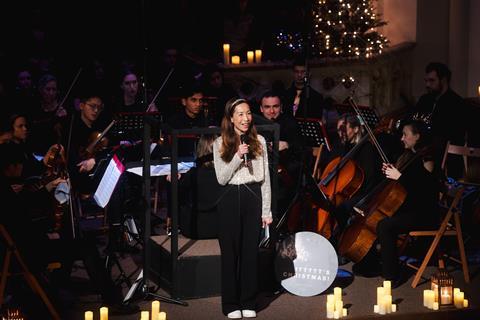
TDF: Was there any fear in stepping away from law to go into ordination?
KC: It’s probably one of the biggest decisions I’ve made in my life, to step back from a career I had invested so much in and had learned so much in. I spent a lot of my time advocating for foreign nationals and immigrants moving to a different country, so I felt like I was still pursuing my calling by practising law and being of service to people.
‘The Church needs to take a good, honest look at who’s sitting at the table and who’s missing’
But I think in the West, one of the biggest idols that we can have is our career; that what we do becomes definitive of who we are. I think I came to a point where I reached a crossroads of either spending another ten, 15, 20 years in law, or being open. Stepping away from law really was a step of faith, because I was leaving behind financial security, skills and practice. But when you follow Jesus you surrender control of your life, which is a scary thing, but Jesus calls us on this life of faith where there is uncertainty.
I had to confront what were the real idols in my life and I couldn’t see somebody else doing [the role] who looked and sounded like me. But I think God honours faith, obedience and sacrifice.
TDF: I’ve heard you mention the faith of your grandma and the impact she had in your life. Can you share a little bit about her influence as a female role model?
KC: I would say one of the most important influences of my life has been my grandmother and she was a woman who prayed. She was born in the 1920s. She didn’t have an education, but she had an encounter with Jesus which totally transformed her life. And because of that encounter, she was committed to making sure that her family were raised in faith. She lived in Hong Kong, but she would come to the UK whenever our family was increasing. She shared a room with me when I was a child and [during those visits] I would wake up to hear her praying at 5am in the morning in tongues. I did not grow up in a charismatic tradition, so I didn’t even know what was happening! But I do know that she was a woman who was devoted to a life of prayer and reading scripture; she would always pray, read her Bible in the morning, she would fast every Friday, and her faith was real, because she was so moved. I sometimes would see her weeping uncontrollably while doing the laundry, and I’d be like: “What’s wrong with Grandma?” And my dad would simply say: “Oh Grandma’s just overwhelmed by the love of Jesus.”
In over ten years of my career in law, I’d never seen a man step down for a woman. I’d never seen someone from the majority step down for someone who was in the minority
I believe that I’m doing what I’m doing because she was a woman who prayed over us – for our faith, and for our futures.
She had a simple, humble faith, but she was a missionary. She travelled a lot for a woman born in the 1920s! She showed me the stamps in her passport; she’d gone all around the world, and she would tell me the miracles that she had seen on her travels, so I grew up hearing the power of what God could do.
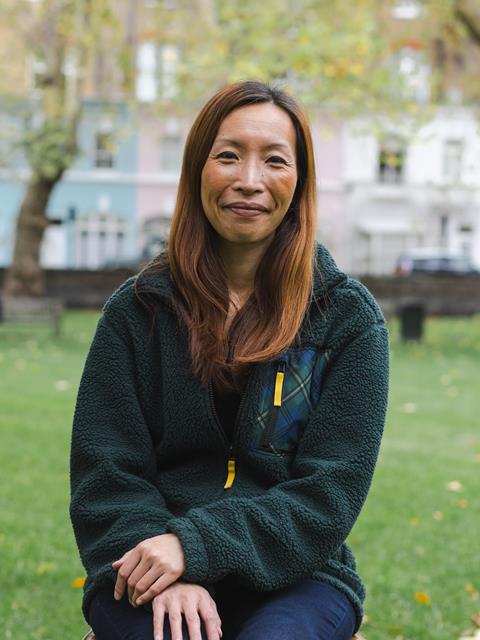
Sometimes I think we forget who God is; we’ve all got bills to pay, but I think about my grandma and [how] her model of faith was audacious and bold. God has a unique plan for every person, and all we need to do is to be curious and willing to take some risks. My grandma was a risk taker and she was obedient to God, so that’s what she modelled to me.
TDF: What do you think the Church needs in terms of leadership and in terms of women?
KC: I think it’s important to have a diversity of voices at the most senior levels of Church leadership, and that’s not because it’s a checkbox exercise, and it’s not because that’s the kind of world we live in. Even if you look at the disciples, there was a diversity of personality, a diversity of gifts, a diversity of perspectives within that group of twelve. The Church needs to take a good, honest look at who’s sitting at the table, and why those people are there, and who’s missing – and why.
If we can have diversity and representative leadership at the most senior levels, it’s going to permeate through the life of the Church
It’s easier to have a have a group of people who all think, talk and sound like you. There’s all this affinity bias. It’s harder to build a diverse leadership team. There’s more space for conflict or difference of perspective, but I do fundamentally believe that if we can have diversity and representative leadership at the most senior levels, it’s going to permeate through the life of the Church. And I think what we’ll see is something deeply enriching. All because we believe we are united around the person of Jesus.
TDF: Is there anything else you want to share with Woman Alive readers?
KC: An encouragement, that I am doing what I’m doing because I was mentored, coached and developed by women, and I saw pioneers. I would encourage anyone who is further along in their journey, who’s more experienced, to be open to God and to pray. I do think more mature women have a role in raising up the next generation of younger women. And if you’re a younger woman and you can see problems and challenges in the Church, but you can’t see how change is going to happen, maybe God is calling you to be part of that change. It might not be easy, but I think God is calling young people to step up and play their part. Where you see that intergenerational connection, particularly between women, there’s something really beautiful that emerges. I’m so grateful for the women who went ahead of me, and when I look around and see the young women coming behind me, I’m encouraged to keep going, to press in and to play my part.
Katherine Chow is associate vicar at Holy Trinity Brompton in London. htb.org @htbchurch




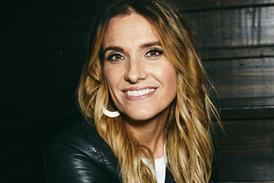
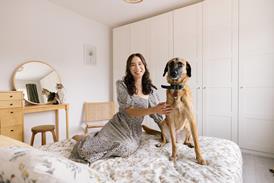





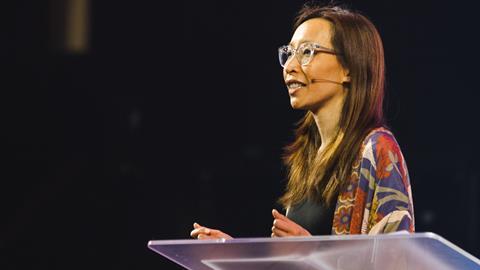

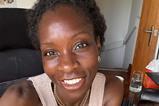

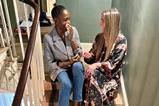
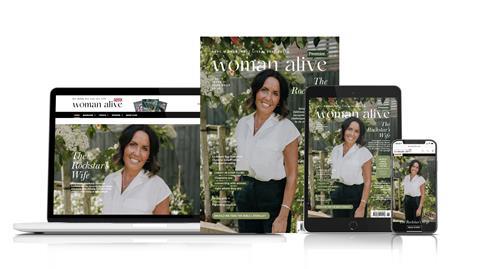
















No comments yet